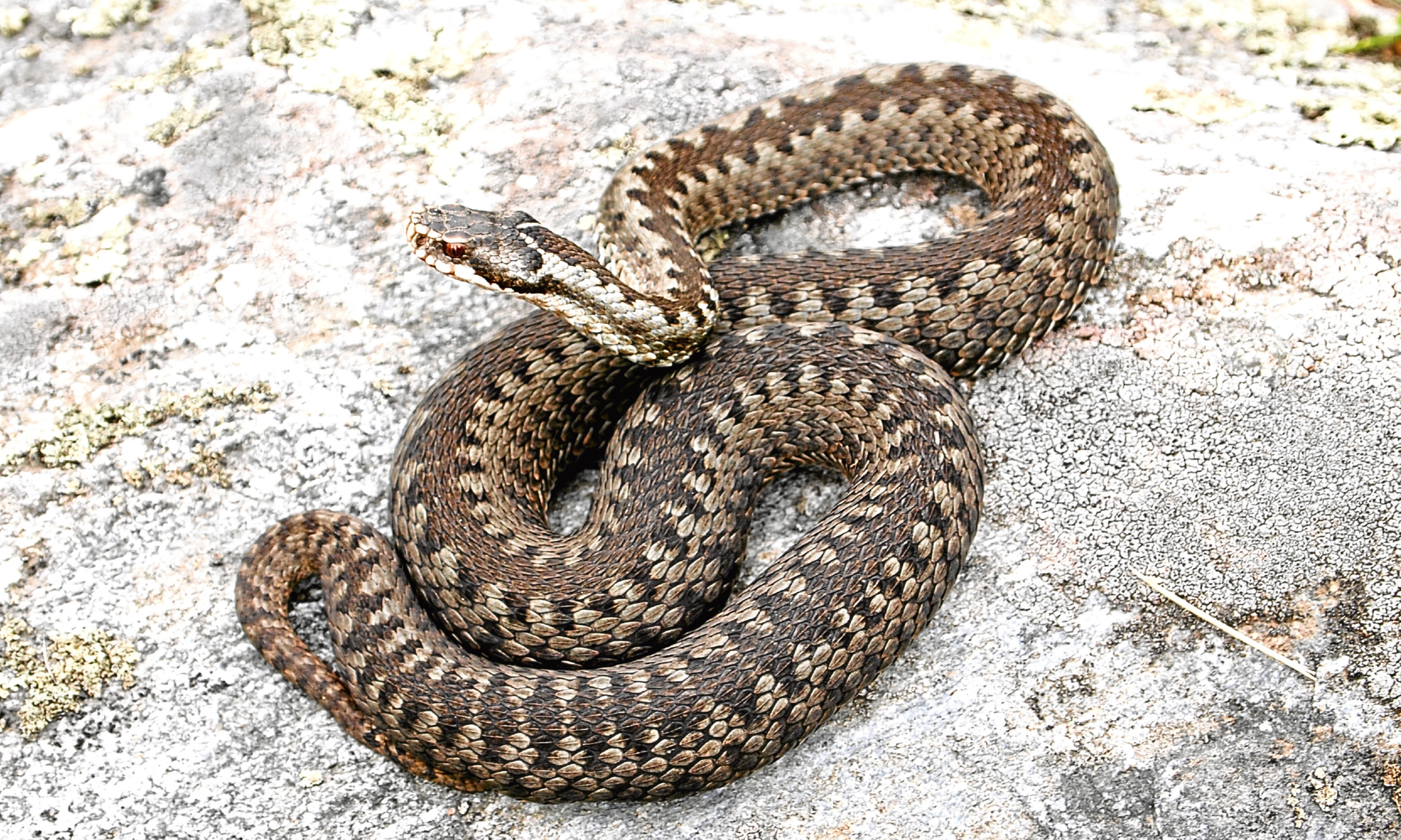Sir, – The adder, also known as the northern viper, is Britain’s only venomous snake.
It is occasionally seen by walkers on moors and hills.
When approached, adders quickly take cover from perceived foes but confrontations do occur between the snakes and dogs as well as humans.
Bites can prove very serious indeed. Recently in Wales, a dog had to be put down and in Bankfoot where I live, a dog’s hind legs were paralysed by a bite.
An Angus man’s dog was bitten but recovered in time after receiving an antidote.
A recent survey revealed that at least 100 people are bitten by adders in the United Kingdom every year.
In some cases, the after effects of the bite can cause a disability.
I believe that in adder country, an antidote should be available from doctors’ surgeries.
Thomas Brown.
3 Church Place,
Bankfoot.
Chinese will corner market
Sir – The letter from Archibald Lawrie (August 14) was the best I have seen on the folly of electric cars.
He mentions the rare earth metals that are necessary in batteries.
These elements, essential to advanced technology, from smartphones to GPS receivers, are also needed for wind turbines.
These rare earth metals are predominately mined in China.
China accounts for 97% of global output of these precious substances, with two-thirds produced in its Baotou region. Processing them has caused pollution in the lake there, fouling its waters which now contain toxic chemicals and radioactive sludge.
These caused epidemic health problems.
So all those who purchase electric cars to be green are in effect destroying lives in the Baotou region.
Environmentalists rejoiced when Volvo announced that in two years’ time it would only produce electric cars.
A Chinese company, Zhejiang Geely Holdings, owns Volvo.
So Volvo will be first in line for the rare earth metals and prices will escalate for everyone else.
Andrew Collins says that electric cars will become cheaper than fossil-fuel cars.
I suspect he has been looking into his green crystal ball for too long.
Electric cars are not green and are an expensive buy.
Clark Cross.
138 Springfield Road,
Linlithgow.
People did vote tactically
Sir, – I am not sure there was anything quite so formal as Mr MacDougall suggests (August 10), as the Conservatives, Labour and Liberal Democrats actually getting together to encourage their supporters to vote for the party most likely to unseat the SNP.
However, it is true that many voters themselves looked at the figures and voted tactically, resulting in the loss of 21 nationalist MPs and within about 30 votes of losing another two forbye.
And why? Because they passionately opposed the First Minister’s apparent determination to hold another independence referendum and wished to show her in the strongest possible terms that they did not want one.
Indeed, judging by the results, especially in the north-east of Scotland ironically enough, there were probably many voters who used to tactically vote SNP to keep the Tories out once upon a time who decided that this time the Conservatives were the lesser of the two evils.
If that be indeed the case, the SNP should be doing some hard thinking.
Jane Ann Liston.
5 Whitehill Terrace,
Largo Road,
St Andrews.
Too soon for electric cars
Sir, – Despite what your correspondent Charlie Burton believes, electricity is not infinitely available.
It is dependent on generators, whether fossil fuel, nuclear or weather based, and an effective distribution network.
These will have to supply the energy to match that used by petrol and diesel.
Vehicles need refuelling at any time of day and not just when grid demand is low.
They need charging when grid demand is high as well.
How does removing the charge from a battery keep it charged and ready for use when grid demand is high?
Non-fossil fuels are needed, but pie-in-the-sky and ill-considered physically impossible assumptions will not make matters any better. Technology is not ready or installed so do not make assumptions that it will be by a certain deadline.
EVs for personal use in built-up areas are a good idea, but they are not suitable for every purpose and location – yet.
Nick Cole.
Balmacron Farmhouse,
Meigle.
Pirates changed music landscape
Sir, – The 50th anniversary of the closure of the radio pirate ship Radio Scotland in 1967 has revived fond memories for those of us party to that era of excitement.
Occurring shortly before colour television came to Scotland, pirate radio stations ushered in dramatic change to the listening habits of the younger generation.
Prior to that listening revolution, Scots with powerful transistor radios risked the wrath of the authorities by tuning in to Europe’s only commercial radio station, Radio Luxembourg.
That changed when Tommy Shields, a cousin of my late father, launched the first programme as CEO of the Radio Scotland pirate station on New Year’s Eve 1965.
During these fabulous two years of pirate radio operation, I had the responsibility of promoting the Radio Scotland Clan Balls in dance halls throughout Scotland.
Many Taysiders of that era will remember DJs Jack McLaughlin, Paul Young and Stuart Henry attracting more than a thousand dancers at the two Scotland Clan Balls in the Top Ten Club of the Dundee Palais in Tay Street.
The realisation now is that Radio Scotland, a rusting pirate ship with no carpets and no heating, survived only two years.
Yet her story, and the story of a couple of other little offshore tubs like her, ultimately changed the musical waves of a nation.
Andrew Lothian.
69 Dundee Road,
Broughty Ferry.
Sea eagle’s shameful ways
Sir, – Your story (August 16) of the two-timing sea eagle was shocking. These birds were introduced to Scotland from Europe.
Post Brexit, we can only hope our border controls will prevent the importation of this type of continental behaviour.
Bob Stark.
Mill Street,
Tillicoultry.
